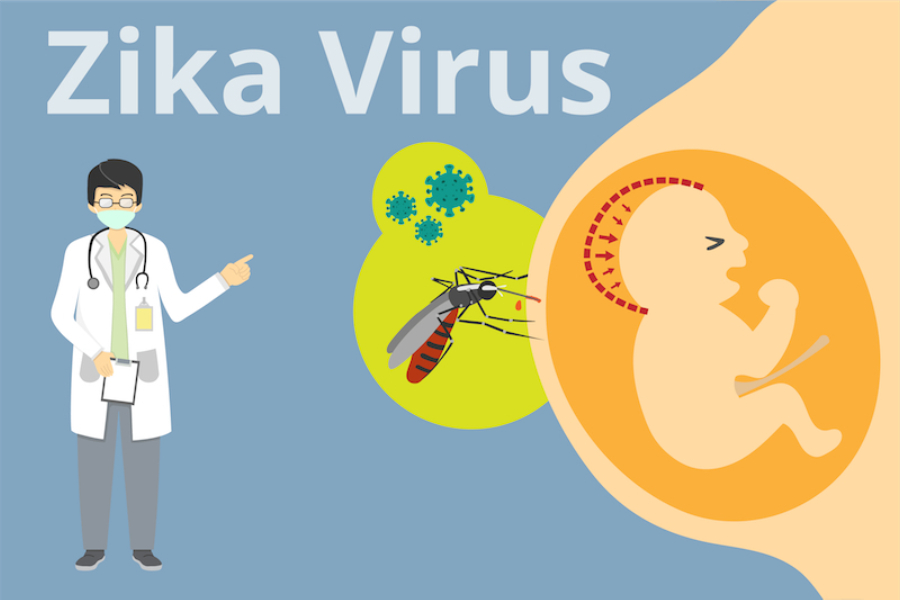- Emergency Ambulance Services
- 8606811111
- 0471-4077777, 0471-7177888
- gro@sutpattom.com
Zika virus – Everything you need to know
The emergence of the Zika virus in Trivandrum between the second wave of Covid -19 has raised concerns and worry. Zika virus disease is not a new disease. It is caused by an RNA virus belonging to the genus Flavivirus. The virus was first identified in 1947 in Uganda. The first infection was administered in 1953 to monkeys in the Zika forest of Nigeria. The disease then spread to other parts of the world until 2007. It first broke out in large numbers among the Pacific island community in 2007. Then there were occasional ‘outbreaks’ in many other places.
Dr. Lakshmi Ammal, Gynecologist of leading Multi-speciality in Trivandrum, SUT explains why the Zika virus is a matter of concern and why carrying women or couples planning for a baby needs to be extra cautious with the virus in Trivandrum.
Zika virus disease usually comes with mild symptoms. Infection often occurs without symptoms. Symptoms of Zika virus include mild fever lasting 2 to 4 days, pain in the joints of hands and feet, redness of the eyes without pus, and red spots on the skin. If there are at least two out of four symptoms, it could be Zika. The virus transmission is by Aedes mosquitoes, mosquitoes that bite an infected person. The virus is also transmitted through sexual contact. Also, if a pregnant woman is infected with the Zika virus, it can be passed on from mother to baby through the placenta. The virus infects immature cells in the brain and nervous system of the fetus. As a result, these cells are destroyed and the brain shrinks. As the size of the brain decreases, the skull shrinks and the baby’s head becomes smaller, a condition called Microcephaly, a disorder of concern for the fetus. It adversely affects the physical and mental development as well as the eyesight and hearing of the baby at birth.
Illness can affect the fetus at any stage from the beginning of the pregnancy to the ninth month. However, it is more dangerous for the fetus during the early stages of pregnancy (first 5 months). Not all Zika viruses cause microcephaly. This problem is mainly due to the genetically modified Zika virus. In Rajasthan and Gujarat, the fetus did not have any of these serious problems during the 2018 Zika virus outbreak.
How can we prevent the spread of the Zika virus?
Awareness of Zika virus infection, which is asymptomatic or with minor symptoms, is most essential. Monitor whether anyone, sexual partner or family members have these symptoms. If so, the blood should be tested for the Zika virus. We can detect the Zika virus RNA RTPCR test by testing the blood.
Ultrasound scanning can find out if the baby is infected with the virus. It can be detected by scanning up to four weeks after the baby is infected by the mother. Therefore, all pregnant women should be scanned every month for four months. The baby and the baby’s brain should be scanned specifically to see if there are any symptoms. In the case of the Zika virus reported in Thiruvananthapuram, this precaution also applies to asymptomatic pregnant women.
Pregnant women should discuss the condition of the fetus in detail with the gynaecologist. Tell your doctor if you want to terminate the pregnancy. Abortion is legal only for up to 175 days( 5.5 months)
If a couple wants to get pregnant in the near future, it may be best to postpone the pregnancy until they have a clear idea about the virus. You can seek the advice of doctors on effective contraceptive methods.
Mosquito control is the most important but difficult thing to do. Be careful not to get bitten by mosquitoes at any time (day or night). The Aedes mosquito, which spreads Zika, is active during the day and in the evening. It is advisable to wear loose clothing that covers the body. Use of mosquito repellent is recommended. All efforts must be made to keep mosquitoes out of the house. We can prevent the reproduction of mosquitoes by not allowing water to stagnate.
We need to be extremely careful until the report on the genetic make-up of mosquitoes in Thiruvananthapuram comes out. Letβs console that the genetic virus of Zika found in Thiruvananthapuram does not cause problems for unborn babies and adults.









